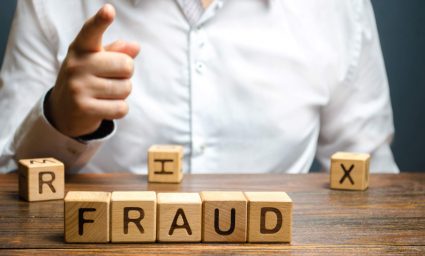 When encountering financial hardships, many individuals often grapple with heightened feelings of stress and urgency as they seek effective solutions to ease their burdens. The ongoing struggle to meet daily expenses can make certain offers appear irresistibly attractive, despite the possibility that they may not serve your best interests. While we continuously advise against falling into the traps of high-interest payday loans or excessive credit borrowing, it is equally critical to adopt a skeptical mindset towards seemingly legitimate financial aid offers. Frequently, funds presented as readily available for you to claim are, in reality, cleverly devised traps set by deceitful scammers looking to exploit your vulnerable situation.
When encountering financial hardships, many individuals often grapple with heightened feelings of stress and urgency as they seek effective solutions to ease their burdens. The ongoing struggle to meet daily expenses can make certain offers appear irresistibly attractive, despite the possibility that they may not serve your best interests. While we continuously advise against falling into the traps of high-interest payday loans or excessive credit borrowing, it is equally critical to adopt a skeptical mindset towards seemingly legitimate financial aid offers. Frequently, funds presented as readily available for you to claim are, in reality, cleverly devised traps set by deceitful scammers looking to exploit your vulnerable situation.
At present, a diverse range of scams is specifically tailored to exploit individuals’ financial vulnerabilities, reinforcing the urgent need for ongoing vigilance and education. A fundamental principle in recognizing scams is this: if an offer appears to be too good to be true, it most likely is. In this comprehensive guide, we will detail various scams designed to target individuals facing financial difficulties, empowering you with the knowledge necessary to discern between legitimate opportunities and fraudulent schemes that could lead to significant financial losses.
Safeguard Your Tax Refund: Learn Your Rights and Available Options
There are legitimate avenues through which you can claim tax refunds for various work-related expenses, including costs associated with tools, uniforms, and mileage. However, these processes typically require collaboration with a tax rebate services company, necessitating that you provide them access to your tax records. It’s essential to recognize that no government agency, including HMRC, can accurately determine your entitled refund without your proactive involvement or consultation with a qualified accountant. Therefore, exercising caution when receiving unsolicited notifications claiming that “HMRC has a tax refund of £261 waiting for you” is wise. Such messages often feature believable amounts, skillfully avoiding the outrageous figures associated with other scams, like the infamous Nigerian Prince schemes. Instead, they may redirect you to websites where you could inadvertently disclose sensitive information, thereby exposing yourself to identity theft or significant financial losses.
To confirm whether such communications are authentic, it’s imperative to meticulously examine the sender’s details. If a text message is received, ensure to verify the originating phone number for legitimacy. It is advisable to refrain from responding to suspicious messages and instead consider reaching out to HMRC directly for confirmation. Remember that HMRC typically communicates through letters or emails sent to your registered address instead of unsolicited text messages. Furthermore, you now have the capability to access your online tax account, where you can view notifications directly from HMRC. If you receive an email, carefully scrutinize the sender’s address; it should originate from an official HMRC domain. Always avoid clicking on links provided in dubious messages.
Recognizing and Evading the National Insurance Number Scam
Recent reports, including those from the Daily Express, indicate that a substantial number of individuals have fallen prey to the National Insurance scam, primarily perpetrated through phone calls. This scheme is particularly notable as scammers may reach out to you on either your landline or mobile phone. The scam often begins with an alarming message claiming that your national insurance number has been compromised. This fear-inducing tactic is designed to create an urgency, prompting you to press a button to speak with someone who can assist you. However, this action frequently results in incurring a premium rate for the call, while the scammers gather your personal information.
To determine whether such a call is legitimate or a scam, remember that reputable organizations will never request that you press a button to continue the conversation. If you find yourself uncertain, simply hang up and conduct a quick online search for the phone number. A brief investigation can often reveal whether the number is associated with known scams, allowing you to effectively safeguard your personal information.
Identifying and Defending Against the DPD or UPS Delivery Scam
Another prevalent scam involves unsolicited texts or emails claiming that a parcel is awaiting your action. These messages often urge you to click on a link to provide personal details, which is a significant warning sign of potential fraud. To protect yourself, carefully scrutinize the source of the email. Scammers frequently employ distorted or unusual email addresses that do not correspond with legitimate businesses. Additionally, review any recent orders you may have placed on platforms like Amazon or eBay; these retailers typically provide comprehensive tracking information for all shipments.
It’s also crucial to recognize that while carriers such as DHL may impose duties on international orders, they will always provide you with specific details regarding your shipment and its origin. If you receive vague messages about package deliveries without having placed prior orders, exercise extreme caution. Staying informed about personal finance scams is vital to shield yourself from becoming a victim of these schemes. If financial difficulties make these scams seem appealing, we encourage you to reach out to us; we can assist you with our debt consolidation loans tailored for individuals with bad credit. Our team is dedicated to helping you navigate your financial challenges safely and effectively.
The Article Finance Scams to Watch Out For Was Found On https://limitsofstrategy.com



